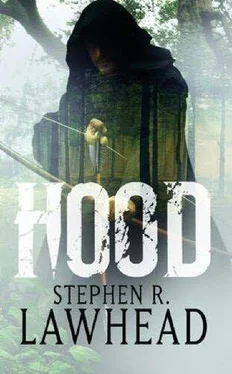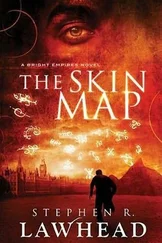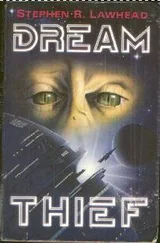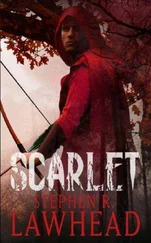Stephen Lawhead - Hood
Здесь есть возможность читать онлайн «Stephen Lawhead - Hood» весь текст электронной книги совершенно бесплатно (целиком полную версию без сокращений). В некоторых случаях можно слушать аудио, скачать через торрент в формате fb2 и присутствует краткое содержание. Жанр: Фэнтези, на английском языке. Описание произведения, (предисловие) а так же отзывы посетителей доступны на портале библиотеки ЛибКат.
- Название:Hood
- Автор:
- Жанр:
- Год:неизвестен
- ISBN:нет данных
- Рейтинг книги:4 / 5. Голосов: 1
-
Избранное:Добавить в избранное
- Отзывы:
-
Ваша оценка:
- 80
- 1
- 2
- 3
- 4
- 5
Hood: краткое содержание, описание и аннотация
Предлагаем к чтению аннотацию, описание, краткое содержание или предисловие (зависит от того, что написал сам автор книги «Hood»). Если вы не нашли необходимую информацию о книге — напишите в комментариях, мы постараемся отыскать её.
Hood — читать онлайн бесплатно полную книгу (весь текст) целиком
Ниже представлен текст книги, разбитый по страницам. Система сохранения места последней прочитанной страницы, позволяет с удобством читать онлайн бесплатно книгу «Hood», без необходимости каждый раз заново искать на чём Вы остановились. Поставьте закладку, и сможете в любой момент перейти на страницу, на которой закончили чтение.
Интервал:
Закладка:
"Get up!" shouted Guy. "Get back to your team. You have delayed us long enough."
"As you say, sire," replied the farmer. He rose and shambled back to the wagon.
Guy returned to the waiting train and ordered five men-at-arms to dismount and help pull the wagon free. These first five were soon as muddy as the farmer, and with just as little to show for it. So, with increasing impatience, Guy ordered five more men-at-arms and three knights on horseback to help, too. Soon, the muddy wallow was heaving with men and horses. The knights attached ropes to the wagon, and with three or four men at each wheel and horses pulling, they succeeded in hauling the overloaded vehicle up out of the hole into which it had sunk.
With a creak and a groan, the cart started up the greasy bank. The soldiers cheered. And then just as the wheels came free, there came a loud crack as the rear axle snapped. The hind wheels buckled and the cart subsided once more; men and horses, still attached to the ropes, were dragged down with it. The oxen could not keep their feet and fell, sprawling over each other. Caught in their yoke, they thrashed in the mud, kicking and bellowing.
Guy saw his hopes of a swift resolution to his problem sinking into the mire and loosed a spate of Ffreinc abuse on the head of the luckless farmer. "Loose those animals!" he ordered his men. "Then drag that cart out of the way."
Seven men-at-arms leapt to obey. Working quickly, they unyoked the oxen and led them from the wallow. Once free, the farmer led them aside and stood with them while the soldiers emptied his wagon, pitching the manure over the sides and then, slowly and with great effort, dragging the broken vehicle up the slippery bank and off the road.
"Thank you, sire!" called the farmer, regarding the wreck of his wagon with the dubious air of a man who knows he should be grateful but realises he is ruined.
"Idiot!" muttered Guy. Satisfied that his wagon train could now pass through, Guy rode back up the slope and signalled the drivers to come ahead.
When the first of the three teams had descended into the dellwhich now resembled a well-stirred bog-Guy, taking no chances, ordered branches to be cut and laid down and ropes to be attached so riders could help pull the fully laden vehicle through the morass. Like a boat dragged across a tide-abandoned bay, the first wagon slid recklessly across. The laborious process was repeated for each of the two remaining wagons in turn.
Guy waited impatiently while the soldiers paused to clean the mud and ordure off themselves as best they could. His sergeant, a veteran named Jeremias, approached and said, "The sun is soon down, sire. Do you want to make camp now and journey on at daybreak tomorrow?"
"No," Guy growled, glancing at the miserable swamp now reeking with manure. "We've wasted enough time here today. I want to put this place behind us. We push on." Raising himself in the stirrups, he shouted, "Be mounted!"
A few moments later, all had regained the saddle. Guy waited until they had fallen into line and reformed the ranks, then called, "Marcher sur!" and the money train resumed its journey.
Once over the rim of the dell, the forest closed around them once more. The setting sun thickened the shadows beneath the overarching limbs, giving the riders the sensation of entering a dim green tunnel. Darkness crept in, closing silently around them. Guy was soon wishing he had not been so hasty in rebutting the sergeant's suggestion and decided that they would make camp at the next glade or meadow; but the underbrush crowded close on each side of the road, the tree trunks so close that the wagon wheels bumped over exposed roots, forcing the drivers to slow the pace even more. All the while, the last of the daylight steadily faded to a murky twilight, and the evening hush descended on the forest.
It was only then, in the quiet of the wood, that Marshal Guy de Gysburne began to wonder why it was that two bedraggled English farmers should speak such ready Latin. The thought had little time to take root in his awareness when the soldiers saw the first of the hanging corpses.
CHAPTER
41
arshal Guy heard the low, tight-mouthed cursing of the soldiers behind him and knew that something was amiss. Without stopping, he turned in the saddle and looked back along the trading ranks. He saw his sergeant and motioned him forward. "Jeremias," he said as the sergeant reined in beside him, "the men are muttering."
"They are, sire," confirmed the sergeant.
"Why is this?"
"Methinks it is the mice, sire."
"The mice, sergeant," repeated Guy, casting a sideways glance at the man beside him. He appeared to be earnest. "Pray explain."
With a tilt of his head, the sergeant indicated a branch at the side of the road a few paces away. Guy squinted at the overhanging branch, which looked no different from a thousand others seen that dayentirely unremarkable, except… except: hanging from the branch was a dead mouse.
The tiny corpse was suspended by a long hair from the tail of a horse, its sun-shrivelled body turning slowly in the light evening breeze. The marshal leaned from the saddle for a closer look and poked it with his finger as he passed. The little dead thing swung on its slender thread. Guy turned his face away and made a show of ignoring what he took to be a harmless, if somewhat sinister, prank.
The attitude was admirable but became increasingly hard to maintain. Try as he might to keep his eyes on the road before him, he could not prevent himself from glimpsing more of the things, and once he began to see them, he saw them everywhere. Swinging on their horsehair nooses from bushes and twigs, dangling from overhanging limbs and branches, high and low, on each side of the road, dead mice hung like grotesque fruit in an orchard of death.
The wagon train continued on into the gloaming, and the farther they went, the more of the weird little corpses they saw-and not mice only. Now, here and there amongst the hanging dead, were the bodies of larger creatures. He saw a vole first, and then another; then moles, shrews, and rats. Like the mice, the moles and rats were strung up with horsetail hair and left to twist gently in the breeze.
Soon, the soldiers were seeing dead rats everywhere-some shrivelled and desiccated as if dried in their skins, others that appeared freshly killed. But all, whether mummified or fresh, were hung by their necks, legs flat to their sides, tails stiff and straight.
Guy, glancing right and left, took them in with a shiver of disgust and, refusing to be cowed by the unnatural spectacle, rode on.
Then came the birds. Small ones first-sparrows, for the most part, but also wrens and nuthatches-scattered in amongst the rodents. The birds were dry husks of the creatures that had been-as if the avian essence had been sucked from them, along with all their vital juices-all of them suspended by their necks, wings folded tight against their bodies, beaks pointing skyward.
A few hundred paces down this weird gallery of death, the soldiers began seeing faces leering from the leaf-bordered shadows. They were not human faces, but effigies of twigs and bark and straw tied together with bits of leather and bone: heads, large and small, their eyes of stone and shell gazing sightlessly from the wood at the passing riders.
The muttering of the men became a low rumble. Everywhere a knight or soldier looked, another disembodied face met his increasingly unsteady gaze-as if the wood were populated with Greene Men, come to menace the intruders. Some of the larger ones had straw mouths lined with animal teeth, bared as if in the frozen rictus of death. These effigies mocked the riders. They seemed to laugh at the living, their mute voices shrill with the unspoken words: As we are, soon you shall be.
Читать дальшеИнтервал:
Закладка:
Похожие книги на «Hood»
Представляем Вашему вниманию похожие книги на «Hood» списком для выбора. Мы отобрали схожую по названию и смыслу литературу в надежде предоставить читателям больше вариантов отыскать новые, интересные, ещё непрочитанные произведения.
Обсуждение, отзывы о книге «Hood» и просто собственные мнения читателей. Оставьте ваши комментарии, напишите, что Вы думаете о произведении, его смысле или главных героях. Укажите что конкретно понравилось, а что нет, и почему Вы так считаете.







